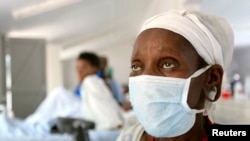WASHINGTON DC —
The rise of tuberculosis in Zimbabwe during the socio-economic crisis of 2008/2009 has been linked to widespread food shortages, according to a new study led by Canadian researchers.
The researchers from the University of Toronto Dalla Lana School of Public Health say this was the first ever research to suggest an association between rising TB incidences and national economic decline in the absence of armed conflict.
The researchers say this may have occurred due to a large HIV-positive population in Zimbabwe that was vulnerable to food shortages.
Reacting to the research findings Doctor Davison Saungweme of Penn State University in USA said the research revealed some interesting statistics about the relationship between TB and malnutrition.
Studio 7 was unable to get a comment from the Ministry of Health.
The researchers from the University of Toronto Dalla Lana School of Public Health say this was the first ever research to suggest an association between rising TB incidences and national economic decline in the absence of armed conflict.
The researchers say this may have occurred due to a large HIV-positive population in Zimbabwe that was vulnerable to food shortages.
Reacting to the research findings Doctor Davison Saungweme of Penn State University in USA said the research revealed some interesting statistics about the relationship between TB and malnutrition.
Studio 7 was unable to get a comment from the Ministry of Health.




